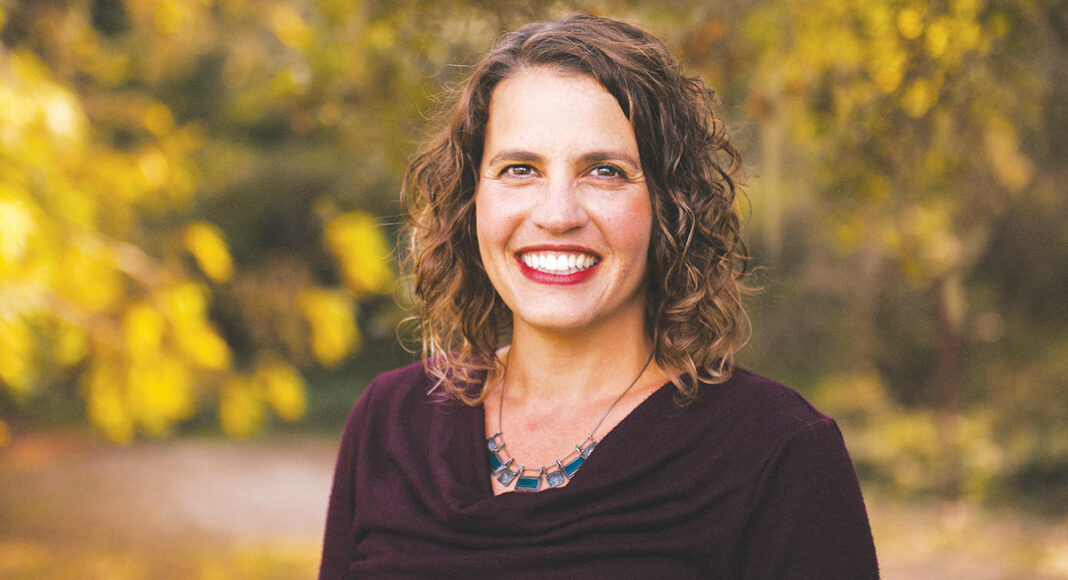In the aftermath of a violent swarming of the Capitol building in Washington D.C. by supporters of President Donald Trump last week, Santa Cruz’s Diversity Center made a more positive announcement of national significance: The group’s lawsuit against the Trump administration has succeeded in blocking an executive action that would have banned many diversity trainings.
The executive order, signed by Trump in September, sought to block workplace diversity trainings by federal contractors and grantees that confronted topics like structural racism, homophobia, transphobia, and sexism. Sharon Papo says the order would have had a chilling effect on the Diversity Center, which provides training to all kinds of workplaces and receives federal funding.
But U.S. District Court Judge Beth Labson Freeman handed down a preliminary injunction in the case, The Diversity Center v. Trump, which was filed by Lambda Legal on behalf of the Diversity Center and several other plaintiffs. And on Dec. 22, Freeman issued her ruling and barred the Trump administration from enforcing its diversity training bans on federal contractors and grantees.
“I felt a lot of relief when the decision came down that this awful, disgusting executive order was not going to go forward,” says Papo.
This victory will allow her to step down from her post with a particularly big bang—after eight years, Papo will be leaving the Diversity Center on Friday, Jan. 15. Papo says she accomplished everything she set out to, and feels the time has come for her to pass the torch to someone else. The center will announce an interim director shortly.
“The lawsuit really let us step up and move forward the part of our mission that says we will advocate for our community,” she explains.
It was hardly the first high-profile achievement for the 31-year-old organization.
Under Papo’s guidance over the past eight years, the Diversity Center expanded programming, including with the launch of the county’s first-ever LGBTQ prom in Watsonville that grew out of conversations with kids who wanted to have a prom experience but didn’t feel safe or comfortable at school dances. The event became a big hit.
“Young people came and danced and had a fun time just being themselves,” Papo says. “Part of what we do in the Diversity Center’s youth program is we provide support, community and leadership. So we supported the vision of our youth leaders in our program on creating the experience that they wanted in their community to honor them and their experience.”
Papo says it was important to communicate that people don’t have to miss out on important milestones just because they’re LGTBQ.
The center added a variety of new speaker series and trainings, including one for outdoor educators.
The expanded programming covers all ages.
The 60Plus Program, for instance, serves more than 300 LGBTQ elders to give them tools on healthy aging. The program also includes luncheons and other social functions. Additionally, the center’s staffers advocate for those living in elder care facilities who need someone in their corner. They offer support when someone’s partner dies.
Papo stresses that the recipients have more than earned the support they’re getting.
“It is for the trailblazers of our movement, many of whom had the greatest risks when they came out,” Papo says. “They were more likely to be rejected by their families. There were no legal protections, so they could be fired from their jobs if anyone knew that they were out, so that has increased economic instability for many of them. And they’re less likely to have kids and less likely to have partners. There’s increased levels of substance use and other coping mechanisms because of the challenge of those stresses they had the challenge to live through. So having a program that honors our program feels really important.”
“It’s also a lot of fun,” she adds.
On top of that, the Diversity Center has attained a level of fiscal sustainability unlike it’s ever had before.
In 2018, the center bought the building it calls home. But then the Covid-19 pandemic started, kicking off a recession of far-reaching proportions. Papo looked at the mortgage bill and thought about the years of payments that stood in the way of the Diversity Center fully owning the building outright. She says that, meanwhile, diversity centers around the country were closing because of the economic downturn.
So Papo launched a new capital campaign and raised enough money to pay off the Diversity Center’s mortgage. Another success.
Not only will the Diversity Center not have to listen to a landlord, but it’s also debt-free. It was no easy lift. More than 80% of campaign donors, she adds, were making the largest donations of their lives. “So clearly, this was a collective dream, and it is a collective legacy for our community,” she says.
At a time when insecurity is increasing for so many, Papo is happy that the Diversity Center will be able to stay the course and lend a hand to those in need.
“Over the past eight years, we have done so much,” Papo says. “I’m so proud of what the organization has accomplished and how the Diversity Center has grown and served so many people.”














